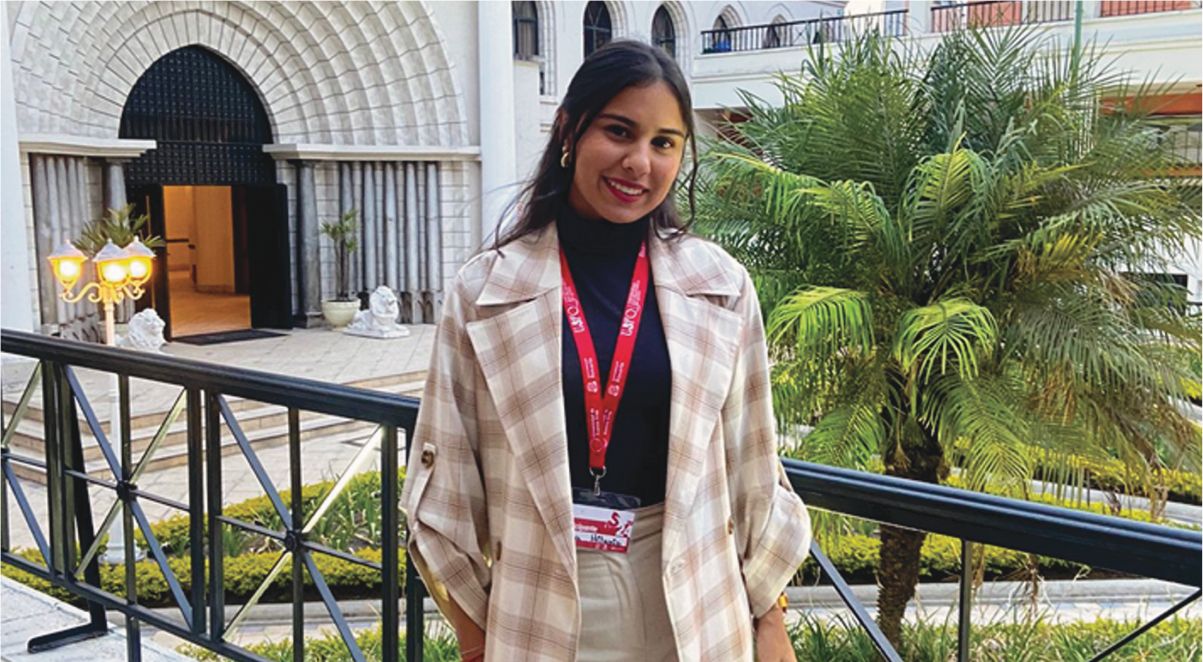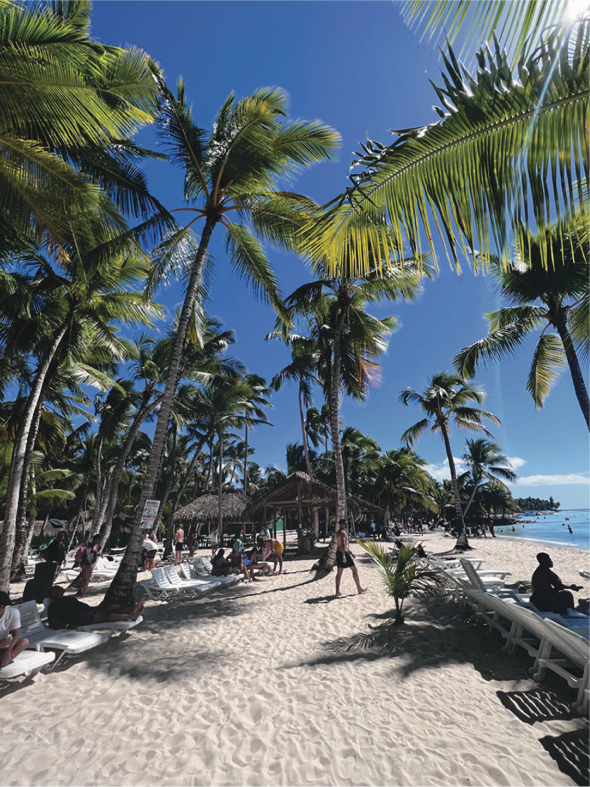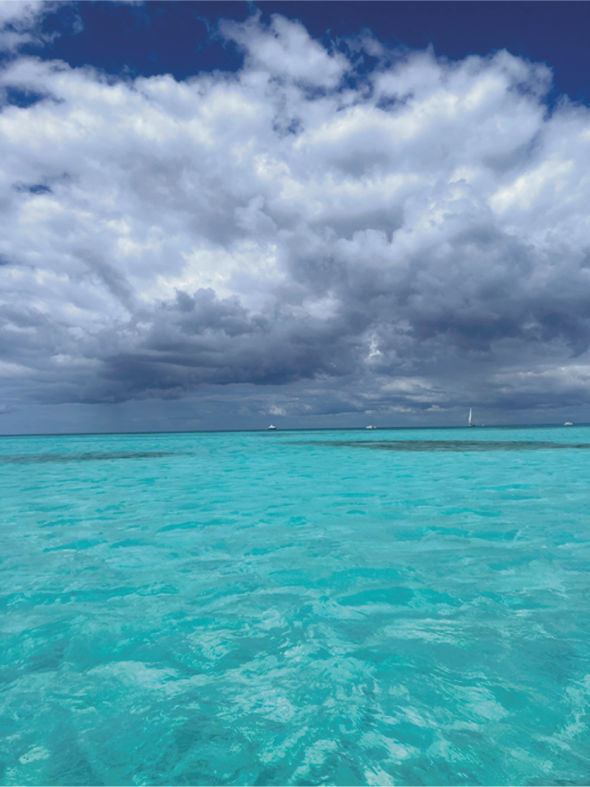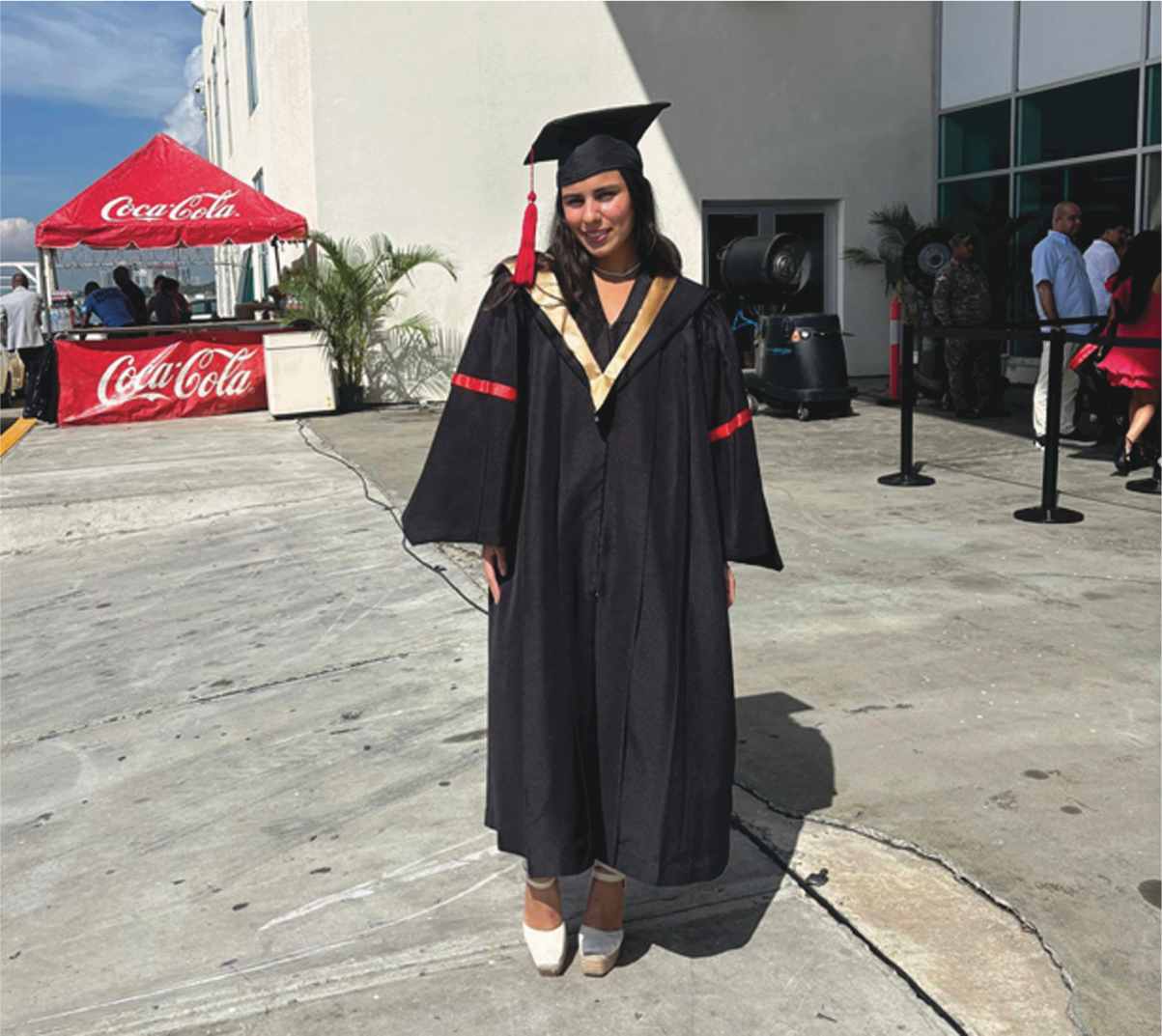Chat with Alba Hilario: A Young Advocate for Solar Energy and International Arbitration
At just 24 years old, Alba Hilario is carving out her place in the world as a young lawyer from Spain, now based in the Dominican Republic. We meet her in a bustling café in the heart of Santo Domingo, where the city's energy is palpable. Here, students from top universities rub shoulders with executives from across the globe, all sharing the same drive to succeed. Alba fits seamlessly into this dynamic environment—poised, hardworking, and committed to making her mark in specialized areas like international arbitration, particularly in its intersection with climate change issues.
Alba’s thoughtful demeanor is apparent as she listens attentively to the details of the International Solar Alliance’s projects. Her eyes light up with curiosity and amazement upon hearing how their initiatives span from enabling the use of life-saving incubators and vaccines to mitigating noise pollution's impact on wildlife. That same curiosity has been her compass, guiding her to adapt to Dominican culture and embra-ce leadership opportunities. Through her role as a paralegal at a prestigious law firm, Alba has taken on responsibilities that range from navigating regulatory complexities to contributing to innovative projects. Meanwhile, her involvement with a student association has seen her travel across Latin America, engaging with legal and environmental challenges.
Today, with Dominican coffee on the table and a wealth of ideas in the air, we sit down with someone who may very well become one of solar energy's future ambassadors—exactly the kind of visionary that the so-called ‘’Solar Revolution’’ needs.

Alba, you began your university studies during the pandemic, a challenging time for any student. Now, as a young lawyer, how do you feel this experience prepared you for the professional world and tack-ling crucial issues like renewable energy?
The pandemic marked a turning point in my university journey. I had to start my studies from home, in a completely new format filled with uncertainties. This challenge taught me resilience and how to adapt quickly to changes. It was a life lesson that, while difficult, allowed me to develop key skills like organiza-tion, self-discipline, and the ability to handle unexpected situations.
In the professional world, this experience has given me a more flexible and open perspective, which is es-sential when dealing with renewable energy—a constantly evolving field. Moreover, during the pandemic, I understood the importance of maximizing available resources, a concept that aligns perfectly with the transition to more sustainable energy solutions like solar power.
You mentioned a passion for international arbitration. What makes this branch of law special, and how do you think it can contribute to the regulation and expansion of renewable energy?
International arbitration is fascinating because it focuses on resolving disputes efficiently, with clear rules in a neutral environment. In the context of renewable energy, this is crucial. As an industry involving var-ious stakeholders—governments, private companies, and foreign investors—it inevitably faces disagree-ments over contracts, permits, or even environmental issues.
Let’s provide an example: a company builds a solar park in another country under a deal that includes tax breaks and fixed electricity prices. Later, the government changes the rules, removing tax breaks and low-ering prices. The company feels this is unfair and takes the case to an international arbitration. In arbitra-tion, both parties agree on a neutral location and choose arbitrators with expertise in international law and renewable energy, making the process more flexible and specialized than a regular court case. Unlike court trials, arbitration is private and ensures a quicker resolution, avoiding the delays and potential biases of a local court. Additionally, arbitration awards are internationally enforceable, so if the company wins, it can recover damages more easily than with a local court ruling, which may not be recognized outside the host country.
From your experience as a paralegal, what do you think are the biggest legal challenges to making solar energy a predominant reality in the Dominican Republic?
Unfortunately, the Dominican Republic currently lacks a solid foundation in environmental education. There is significant litter and waste on the streets, contributing to pollution. While municipalities are mak-ing efforts to raise awareness among citizens, progress has been observed in the form of more consistent waste collection systems, with garbage trucks becoming more visible. The Caribbean sea has been increa-singly protected, in part do to the increasing weight of tourism on the national economy.


Regarding renewable energy, there is a growing investment in solar panels. For example, the electricity distributor in the Punta Cana area, CEPM, operates a large solar field with numerous rows of solar panels. This has resulted in fewer power outages, more reliable electricity, greater energy efficiency, and reduced pollution.
The country is also betting on new techniques, such us use sargassum seaweed to generate energy and electricity through photosynthesis. Can you imagine that?
Speaking of education, you’re part of the International Law Students Association (ILSA). What role does this organization play in fostering young people’s interest in topics like renewable energy or sus-tainability?
ILSA is an incredible platform because it allows young people to explore and learn about international is-sues that are often not deeply covered in classrooms. Although our main focus is international law, we are open to discussing any topic that interests our members, and I believe renewable energy should be one of them.
I honestly take such a great pleasure empowering students by providing them with tools and opportunities to make meaningful contributions to the world. I’m convinced that involving young people in sustainabil-ity discussions can create a positive impact, not just on their careers but also on how they perceive their responsibility towards the environment. If people do not understand their responsibility, how can we ex-pect them to take action?

In the Dominican Republic, you mentioned innovative projects like using sargassum to generate en-ergy. Do you think there is enough legal support for such groundbreaking initiatives?
Not entirely. These kinds of projects often face legal hurdles, either due to a lack of specific regulations or because existing ones don’t account for such innovative technologies. I believe greater collaboration be-tween the public and private sectors is needed to create laws that support these initiatives from their early stages.
It’s also essential to train legal professionals to provide proper guidance in these cases. If we overcome these barriers, projects like the one using sargassum will not only address environmental issues but also open new economic opportunities for the country.
From your perspective as a young lawyer, what message would you give to other legal professionals about their role in the energy transition?
Law is not just a set of rules; it’s a powerful tool to transform society. As lawyers, we have the responsibil-ity to ensure that the energy transition is fair, accessible, and environmentally respectful. This means working on laws that encourage investment, protecting local communities, and ensuring that renewable energy integrates effectively into our reality.
My message would be to not see the energy transition as something outside their field but rather as an op-portunity to innovate and make a significant contribution to humankind.
Finally, where do you see yourself in a few years? Do you envision yourself leading legal projects relat-ed to solar energy?
Absolutely, I would love to be involved in projects that drive solar energy forward, whether by advising on the creation of regulatory frameworks or helping resolve legal disputes in this field. I’m also very interested in the educational side, sharing what I’ve learned and inspiring other young people to join this cause.
I believe the future is full of possibilities, and my goal is to continue growing, learning, and contributing—not just as a lawyer but as a citizen committed to the environment. My future is blank canvas, but with a bright sun shining on it.
